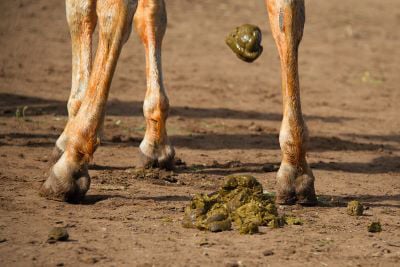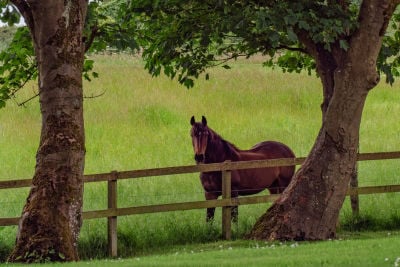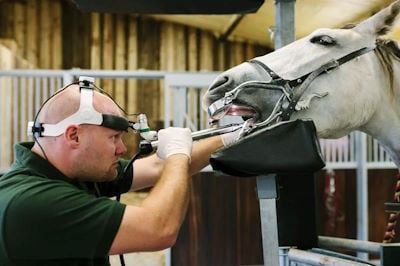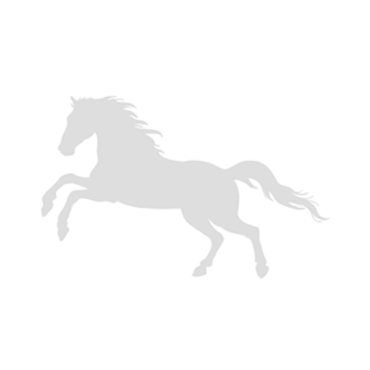The life span of horses has changed dramatically in the last few decades, with many horses now reaching prime competition age in their early teens and living well into their late 20’s and beyond. Improved management, better understanding of musculoskeletal physiology, and advances in veterinary care and equine nutrition have all played a role in increased longevity.
Horses and ponies are much-loved members of the family, and remain so into their senior years, so it’s important to understand how their nutritional needs might change as they mature.
Dental health for older horses
One of the first things we think of in relation to older horses is changes to dentition, and with good reason. Normal tooth growth through the years results in shorter roots, making teeth more prone to falling out. Uneven wear and tear, broken and missing teeth, infections, sharp edges and diastemas can all result in difficulty breaking down long or fibrous forage, or cause pain which then discourages chewing.
Routine dental checks, every 6 months, would always be recommended to ensure any problems are spotted and dealt with quickly. Signs that an elderly horse may require dental attention include quidding or dropping food, food balling up in the cheeks, loss of appetite and weight loss. Other symptoms may include free faecal water, if the horse is unable to adequately break down stalky forage which then passes through undigested to the hindgut, or nasal discharge if a dental infection has migrated through to the sinus cavity.
Some horses struggle with uneven wear and missing molars which cause issues with grinding down forage. Others may experience loss or difficulties with the front teeth or incisors resulting in trouble ‘snipping off’ grass when grazing. As with any nutrition advice, it’s vital to consider the needs each individual horse and adapt their feed to what their dentition can best cope with.
Nutrient absorption in veteran horses
Digestion begins in the mouth with the teeth grinding down the forage into smaller particles. Increasing the surface area to volume ratio of the feed particles allows the acids and enzymes in the stomach and small intestine respectively to more effectively break down the fibre and carbohydrate within the forage. With compromised dentition this critical stage of the digestive process is hindered, which can then reduce absorption of nutrients and overall energy.
Further along the digestive tract, changes to the geography of the intestine may also cause changes to the absorption rates of various nutrients although research on this topic is conflicting. Older horses may have higher dietary protein requirements than younger horses at maintenance, and protein quality should be as much of a concern as quantity. Amino acids are the building blocks of all proteins. Imagine muscle protein as a wall built of Lego. Each of the different amino acids is a Lego block of a different colour. The wall must be built according to a specific colour pattern, with a certain number of each colour included. If there are only a few, say, blue and red blocks but lots of yellow and green, the wall can only be built as high as the availability of blue and red blocks allows, regardless of how many yellow and green blocks there are. Similarly with amino acids, muscle proteins can only be built according to specific patterns, and the rate of building is limited by the availability of certain amino acids. In the context of a forage-based diet, these would usually be lysine and methionine. Any other amino acids provided in excess will be processed by the liver and used for energy, with the waste from this process being excreted in urine through the kidneys. As such, increasing the total protein intake for a veteran horse without regard for the amino acid balance may place extra strain on the liver and kidneys.
Parasite control is vitally important in all horses, and veteran horses may be at increased risk of infection. Any parasite infection or damage relating to infection earlier in life can further increase risk of nutrient malabsorption, particularly that of protein.
Sarcopenia, or loss of muscle mass, is common in older horses. Although quality protein intake is a factor in maintaining muscle mass and therefore function, exercise is also instrumental. However, any exercise programme for an older horse must be balanced with soundness and comfort, particularly with respect to the joints.
Hind gut digestion in older horses
There is some evidence that production of enzymes responsible for the digestion of starch may also decrease with age. Starch from high cereal feeds therefore passes through the small intestine undigested or absorbed, where it alters the balance of the gut microbiota creating a more acidic environment. Focussing on providing energy as fibre, including sugar beet and soaked mashes for horses with poor dentition, along with oil or high-fat feeds such as copra and linseed meal (whilst being mindful of calcium: phosphorous ratio), provides a safe source of energy for veteran horses.
Keeping an eye on their faeces is a valuable way to gain an insight into how well they are chewing and digesting their feed. Finding relatively long stalks suggests the horse isn’t chewing as well as they could, so is an indication that teeth ought to be checked. Equally, insufficiently chewed and digested forage can be a factor in faecal water syndrome. In general, fibre has a high-water holding capacity, but this is reduced when insufficiently chewed, or when the overall fibre intake is low. Some very coarse hays have a lower water holding capacity and are also harder to chew, so it may be necessary to consider replacing some of the hay with a grass chop or similar to help digestion and improve formation of the faeces. Pre and probiotics may help stabilise the gut microbiota and support efficient digestion.
While age-related digestive changes can account for some changes to faeces, it is important to rule out any other cause. Veterans are more susceptible to parasites or other medical issues that should be ruled out alongside dietary management strategies.

Keeping an eye on your horse's faeces is a valuable way to gain an insight into how well they are chewing and digesting their feed.
Environmental management tips for older horses
Veteran horses are less able to cope with changes in temperature; both heat and cold. In summer ensuring constant access to shade (preferably under trees rather than field shelters) and unlimited fresh water are absolute non-negotiables, while providing electrolytes including sodium can help fluid balance and replace the minerals lost in sweat.
Cold temperatures also pose an extra challenge, particularly if fibre intake is reduced. Fibre digestion in the hind gut generates heat, which helps keep horses warm during winter months. Reduced fibre intake therefore impacts the horse’s ability to keep warm.
Drinking cold water during winter lowers internal temperature, so some horses will restrict intake in an effort to keep warm, resulting in dehydration and potentially even impaction colic. Ensuring they are kept warm through proper rugging, adequate fibre intake and good body condition will go some way to reducing any reluctance to drink for this reason. Warm mashes can also be a good way to encourage horses to increase water intake. Monitoring the quantity of water being drunk as the temperature drops can help owners know whether any changes to management are needed and help prevent consequences of dehydration before they become an issue.

Ensure constant access to shade for your horse
Conclusion
In summary, many horses live comfortably and very happily into their golden years. Maintaining a healthy weight and movement are key to longevity. Careful management including the following can help horses remain active and improve overall wellbeing:
- Routine dental checks
- Rigorous parasite testing and control programme
- Ensuring good fibre intake; adapting fibre source as required
- Consider a pre and probiotic if necessary
- Monitoring faecal output and any changes to faeces to inform fibre choice
- Monitoring water consumption
We hope that this article has given you some top tips to support your golden oldie. For any advice or questions you may have, please don't hesitate to reach out to our expert nutrition team. You can call 0800 585525 Monday-Friday 8:30am-5:00pm. Email [email protected], or send us a DM on social media.


_800.png)

